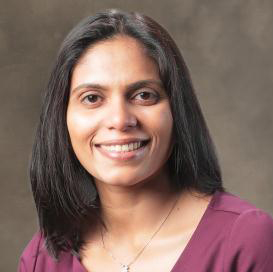Commentary by Dr. Sweta Tandra

Some topics, such as those pertaining to bodily functions and colonoscopies, just don’t seem right for polite conversation or thoughtful consideration as you trudge through daily obligations. The latter, however, is key to stopping the second-deadliest cancer to hit Americans: colon cancer.
Many patients live with colon cancer for many years with no symptoms. The disease is highly treatable when identified early, but chances of survival dwindle considerably if caught after it spreads outside the colon.
The linchpin: early screening. In fact, 60 percent of colon cancer could be prevented if everyone underwent screening aged 50 and older, the age group where 90 percent of colon cancer is found.
During a colonoscopy, doctors examine the colon with a flexible tube, looking for pre-cancerous growth. Many patients tell me they didn’t get a colonoscopy because no one told them to, or because they feared the process.
Once patients undergo the test, they find it’s not as difficult or uncomfortable as they thought. If, for whatever reason, a colonoscopy isn’t feasible, clinicians can use other screening modalities, like a simple stool test, flexible sigmoidoscopy (shorter scope that does not need elaborate colon cleansing) or CT colonography (a series of X-ray scans). .
A surprising trend with colon cancer diagnoses is the rise in incidences in people between 20 and 50 years old. Scientists don’t yet understand why, and the data isn’t strong enough to extend screening to everyone, as a result of possible adverse effects. For patients younger than 50, I recommend paying close attention to symptoms like abdominal pain, rectal bleeding, changes in bowel habits or anemia, as well as risk factors (obesity, smoking, high alcohol consumption) and family history.
Regardless of age, a healthy lifestyle with a fiber-rich diet, no smoking and limited alcohol consumption can go a long way to prevent colon cancer. But don’t forget screening. With a little education, patients find screening can be simple. Most importantly, it can help us stop cancer.
Dr. Sweta Tandra is a gastroenterologist with St.Vincent Medical Group.




